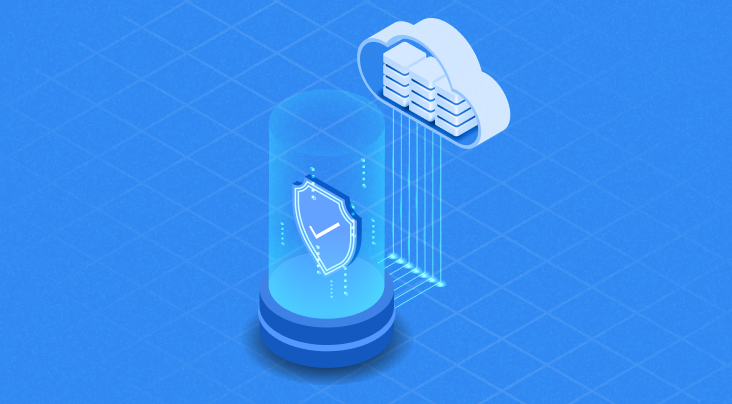On 12 September 2024, the Australian Government introduced the first set of reforms to the Privacy Act 1988 through the Privacy and Other Legislation Amendment Bill 2024 in Parliament.
The Bill signifies a substantial advancement in Australia's privacy landscape. It aims to update the Privacy Act 1988 and enhance individual rights, introducing significant amendments impacting Australia's businesses, government organizations, and online platforms.
This comprehensive analysis reviews the amendments made by the Amendment Bill and their implications for businesses that handle personal data.
The Bill introduces a range of measures to enhance privacy protections and address the challenges of today’s data-driven digital technologies. These include:
1. Introduction of a Privacy Invasion Tort
One of the most significant amendments includes a statutory tort for privacy violation. If an individual’s privacy has been breached, they have the right to sue entities and pursue financial compensation. This bold step holds organizations that misuse personal data accountable and discourages unlawful activity.
Compliance Recommendation
Organizations must identify the potential risks to the personal information they process, proactively secure personal data, and implement stringent protection measures to avoid penalties for noncompliance.
2. The Children Online Privacy Code (COPC)
The Amendment Bill recognizes the necessity of safeguarding kids' privacy and requires the development of a Children's Online Privacy Code.
The COPC will detail precise guidelines for businesses that collect and process data on children to ensure protection for minors. The Office of the Australian Information Commissioner (OAIC) is tasked with developing a COPC and outlining the application of relevant Australian Privacy Principles (APPs).
Compliance Recommendation
Organizations must minimize risks to children's personal information by conducting data mapping, categorizing and managing retention obligations, and securely de-identifying or destroying unnecessary data. They must also obtain valid consent when processing children's personal information and update their privacy policies to reflect the same.
3. Enhanced Transparency for Automated Decision-Making
The Amendment Bill addresses the need for increased transparency as automated decision-making technologies proliferate. Organizations that utilize algorithms for individual-impacting choices (such as credit approvals, insurance assessments, or personalized marketing) must now clearly explain the processes involved in these determinations in their privacy policy.
Compliance Recommendation
Organizations must update their privacy notices to disclose information when using automated decision-making that impacts individuals' rights or interests.
4. Data Sharing in Emergencies and Eligible Data Breaches
The Amendment Bill establishes procedures for data sharing that enable the secure and authorized transmission of information to safeguard public safety during emergencies like natural disasters or health crises.
Additionally, companies must notify the Office of the Australian Information Commissioner (OAIC) and the impacted parties as soon as possible in case of an eligible data breach. This step enhances the existing Notifiable Data Breaches (NDB) scheme, ensuring that individuals are informed and can take protective measures promptly.
Compliance Recommendation
Organizations should implement a system to classify personal information by sensitivity and risk, enabling quick identification of data for sharing during emergencies or eligible data breaches.
5. Expansion of OAIC’s Authority
The Amendment Bill significantly expands the OAIC's powers to enforce the new requirements effectively. The OAIC now has enhanced authority to investigate privacy breaches, impose penalties, and issue compliance orders.
Compliance Recommendation
Organizations must review and test their data breach response plans to ensure effectiveness and avoid new penalties.
6. Adequacy Requirement for Cross-Border Data Flow
Cross-border data transfers are essential for corporate operations in a world of growing connectivity. However, The Amendment Bill places more stringent limitations on transferring personal information outside of Australia. Organizations must demonstrate that the recipient country has adequate privacy protections on par with Australia's. This aims to protect the personal information of Australians while it is beyond the country’s borders.
Compliance Recommendation
Organizations must assess the legal frameworks of recipient countries to ensure alignment with the APPs. They should establish data transfer agreements specifying privacy obligations and regularly review and update them to reflect legislative changes.
Best Practices for Organizational Compliance
Organizations must proactively update their policies and practices to comply with the new requirements. Key steps include:
- Review and update privacy policies and notices to align with the new requirements, especially concerning transparency in automated decision-making and data handling for minors.
- Implement robust data security measures and ensure that personal data is adequately protected to prevent breaches and violations.
- Conduct Privacy Impact Assessments for high-risk activities and implement a system to classify personal data by sensitivity and risk.
- Regularly review and test data breach response plans to ensure they are effective and compliant with updated regulations.
- Implement valid consent mechanisms, especially for processing children's data.
- Establish protocols for securely sharing data cross-borders during emergencies.
- Stay informed about evolving requirements and embrace automation.
How Securiti Can Help
Navigating these new privacy requirements can be complex. Fortunately, Securiti’s suite of automation modules offers a comprehensive solution for organizations seeking to ensure compliance with the Privacy and Other Legislation Amendment Bill 2024.
Securiti is the pioneer of the Data Command Center, a centralized platform that enables the safe use of data and GenAI. Securiti provides unified data intelligence, controls, and orchestration across hybrid multi-cloud environments. Large global enterprises rely on Securiti's Data Command Center for data security, privacy, governance, and compliance.
Request a demo to learn more.












































